
"I am rich Potosí, treasure of the and world, king of mountains envy of kings."
Although these words on the coat of arms that King of Spain Charles V granted to the city of Potosí in 1557 might seem pretentious, they were actually somewhat understated. By 1600, Potosí, the biggest city in Spain's Viceroyalty of Peru, was indeed the "treasure of the world" and the "envy of kings." As the richest silver deposit that would ever be discovered, Potosí would yield a monumental fortune that would impact the world socially, politically and economically.
But Potosí would also be a consummate paradox, a place where fabulous wealth mingled with abject poverty, lavishly adorned cathedrals shadowed dismal hovels, and grand religiosity confronted unimaginable cruelty.
And the drama of Potosí is still playing out today at the lofty elevation of 13,400 feet in the Andes Mountains of southern Bolivia.
CERRO RICO
Potosi's silver was emplaced within a reddish, cone-shaped mountain that the Spanish fittingly named Cerro Rico (Rich Mountain). This barren, 15,689-foot-high remnant of a 14-million-year-old volcanic dome was mineralized when superheated, silver-and-tin-rich hydrothermal solutions surged upward into the fractured dome.
Upon cooling, ore minerals precipitated in veins, with silver veins overlying those of tin. Because of its shape and a low water table, Cerro Rico had an unusually large oxidation and enrichment zone where the original silver sulfide could alter into the silver-chloride mineral chlorargyrite.
This vein-hosted, polymetallic deposit, as geologists now describe it, consisted of a complex network of vertically oriented veins as thick as five feet. Many were extraordinarily rich and graded 40 percent silver by weight. A single ton of this ore, with a volume of just five cubic feet, contained as many as 12,000 troy ounces of silver.
This story is from the December 2022 edition of Rock&Gem Magazine.
Start your 7-day Magzter GOLD free trial to access thousands of curated premium stories, and 9,000+ magazines and newspapers.
Already a subscriber ? Sign In
This story is from the December 2022 edition of Rock&Gem Magazine.
Start your 7-day Magzter GOLD free trial to access thousands of curated premium stories, and 9,000+ magazines and newspapers.
Already a subscriber? Sign In
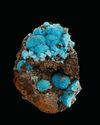
The Other Copper Minerals
12 Lesser-known Collectible Species
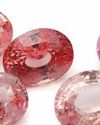
Gemstone Trends
A Look Back at 2024 & What to Expect in 2025
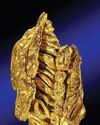
ROCK & GEM FIELD GUIDE:
Spinel is a captivating gemstone with a rich history of being mistaken for gems like ruby and sapphire.
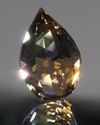
SNAKE SCALE DROP 1.5:1
This Faceting Focus is revisiting the briolette gemstone design because of its popularity with independent and hobby gemstone faceters.

Training the World to Facet Gemstones
The lapidary world continually expands as we experience a resurgence in people faceting colorful gemstones. Encompassing all demographic groups, this enduring artistic medium is accessible to everyone willing to spend the time to learn.
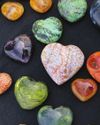
Gems with Heart
The History of a Lovable Motif
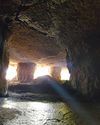
The Widow Jane Mine & Snyder Estate
Resonant History in New York's Hudson Valley
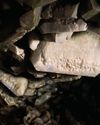
Rockhounding Ohio's Lake Erie Islands
A short ferry boat ride three miles from Ohio’s Lake Erie coastline is South Bass Island, better known as Put-in-Bay or the “Key West of the North.”
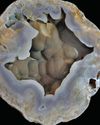
Iowa's Hidden Treasures
Exploring Keokuk Geodes: How They're Made & What's Inside
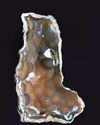
Agatized CORAL
Florida's Collectible State Stone